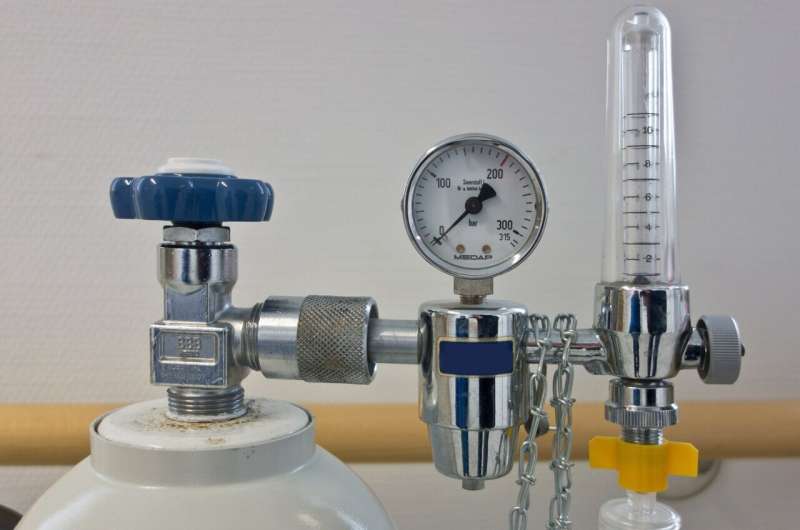
A new clinical approach that reduces the use of mechanical ventilation can greatly improve outcomes for critically ill infants and children, finds a major new UK trial involving UCL researchers.
The Sedation AND Weaning In CHildren (SANDWICH) trial, led by Queen’s University Belfast, involved more than 10,000 child and infant admissions to 18 UK pediatric Intensive Care Units.
Published in the Journal of the American Medical Association (JAMA), the trial—the largest of its kind in the world—assessed a multicomponent intervention designed to help clinicians safely wean critically ill children off ventilation.
This is a complex process involving several stages that include recognition of patient readiness to begin the weaning process, steps to reduce ventilation while optimizing sedation in order not to induce distress and removing the endotracheal tube.
The 20-month trial found that a greater involvement of nurses, minimizing sedation use and increasing daily testing to assess the child’s readiness to come off the ventilator, significantly reduced time on mechanical ventilation.
Compared to the current standard care, the study reported that in children who were expected to be on a ventilator for more than 24 hours, the intervention reduced the time on the mechanical ventilator by an average of six hours.
Furthermore, in all children, regardless of whether they were expected to be on a ventilator for more or less than 24 hours, the intervention reduced the ventilation time by an average of seven hours. Overall, the chances of children having their breathing tube removed successfully was greater.
Trial lead, Bronagh Blackwood, Professor of Critical Care from The Wellcome-Wolfson Institute for Experimental Medicine at Queen’s University Belfast, said: “To minimize the risks associated with mechanical ventilation, the sooner children are weaned off the ventilator, the better their outcomes.
“We have shown that nurse-led care, with daily screening to test for readiness to come off the ventilator and reduced sedation, is safe and greatly improved their chances of getting off the ventilator earlier than before.”
Annually, in the UK, approximately 20,000 infants and children are treated in a pediatric ICU and, of these, around 12,000 receive mechanical ventilation. Mechanical ventilation is a lifesaving therapy but may involve related risk caused by the breathing tube in the mouth and throat, the sedative drugs needed to reduce anxiety, and remaining confined to bed.
Professor Mark Peters, UCL Great Ormond Street Institute of Child Health and Consultant in Intensive Care at GOSH, said: “This is the largest randomized control trial ever undertaken in pediatric intensive care with more than 8,800 critically ill children taking part—almost 2,000 children at GOSH alone.
“To improve the care of the very sickest children in our hospitals, pediatric intensive care teams from across the UK have come together to put bedside nursing at the heart of decision making, and introducing a more structured approach to reducing sedatives and ventilation.
“This trial redefines what is feasible in children’s intensive care research.”
Source: Read Full Article
